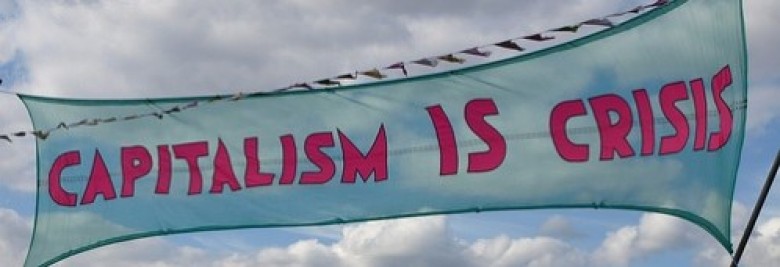
Christmas Time
FOURTH INTERNATIONAL CULTURAL DIFFERENCE AND SOCIAL SOLIDARITY NETWORK CONFERENCE
4th International Conference
Cultural Difference and Social Solidarity Network
Differences, Solidarities and Digital Technologies
Hosted by
Middle East Technical University
Northern Cyprus Campus
Tuesday, 1 July through Friday, 4 July, 2014
The 4th International Conference of the Cultural Difference and Social Solidarity Network aims to examine the influence of the spread and growth of digital technology on constructions, concepts, and perceptions of difference and solidarity. By “digital technology” we mean any combination of electronic devices and digital communication including the devices themselves (from smart phones to servers), software and applications, and communication networks. Approximately two thirds of the world’s population (according to the World Bank) has limited access to digital technologies, yet the remaining one third of the population who use these technologies are arguably reshaping concepts of difference and solidarity that have broad implications for all people, their social and cultural institutions, the environment, economic systems, etc. As an example of an area of contested solidarity and difference within that one third of global users, are the broad claims from academia, the market, and digital technology proponents regarding the use of digital technology and devices to promote solidarities, virtual and real, and create an easing of difference through democratizing constructs such as increased access to the internet and communication devices. Contrary arguments assert that solidarities in a virtual world are not possible; that the democratizing effect of the internet, or even wireless service, is an illusion constructed by large corporations that control many of the on-ramps and consumer interfaces of the web in neoliberal societies; and that the growth of use of digital technologies creates new differences and increasingly solidifies existing ones.
This conference seeks to provide a space for scholars to take stock of the present global context and share knowledge – specific or general, empirical or theoretical, with a view to develop and explore the possible ways of understanding the impact of digital technologies on differences and solidarities. The conference is intended to be interdisciplinary and welcomes papers from scholars whose research crosses traditional disciplinary boundaries. Papers and panels are sought for presentation at parallel sessions where each paper will have a strict maximum of 20 minutes presentation time on panels of 2 papers with 25 minutes per paper discussion time.
Initial starting points for paper topics on the 2014 conference theme are listed below. We will also consider papers on themes from previous conferences and/or previous participants who have on-going research on broader areas of difference and solidarity. All papers/presentations should in some way connect to, or address, Cultural Difference and Social Solidarity:
Social media:
Identity
Economy
Politics
Law
War
Governments
Revolutions
Displacement
Sex
Bullying
Religion
Technology and hegemonies
Academia and technology:
New disciplines e.g. Digital humanities
Academic freedom
Discrimination
Discourse
Exploitation
Inclusive/exclusive methodologies
Electronic production:
Mining, manufacture, distribution, retail
E-waste
Passive and active digital media
Ethics and digital technology
Art and Culture
Digital geography
Digital nativism
New media subjectivity
Gaming
Digital literacy
Epistemology
Experience
These themes are not exhaustive and the organizers will consider other papers relevant to the conference subject of Digital Technologies and Cultural Difference and Social Solidarity. We expect to publish a post-conference edited book, derived from the papers presented and organized around themes that reveal themselves during the conference.
There will be two keynote plenary sessions with speakers to be announced. Reflecting the conference theme in the context of the conference venue, one of these sessions will focus on aspects of these themes in Cyprus.
Abstracts may be submitted anytime until March 31, 2014
Notification of abstract acceptances and rejections is on a rolling basis (within 3 weeks of submission)
Online conference registration open from March 17, 2014 to May 30, 2014
Conference Fees to be paid by May 30, 2014
The conference language is English and all papers and presentations should be in English.
The conference fee is 395 Euros (295 Euros for post-grad students and non-participants).
This fee includes:
Registration:
Transfers to and from ErcanAirport in the TurkishRepublic of Northern Cyprus to METU-NCC Campus
4 nights at Campus Guest House with breakfast
4 lunches
2 Sunset Dinners (all drinks included)
1 Dinner Banquet (non-alcoholic drinks included)
Guided Historic/Cultural Excursion
Abstracts of no more than 350 words may be submitted online only, to: http://www.differenceandsolidarity.org/
For any questions or concerns please see our website, including the FAQ page, or contact the conference organizers at the email address below.
Conference Organisers:
Scott H. Boyd
Middle EastTechnicalUniversity – Northern Cyprus Campus
Paul Reynolds
EdgeHillUniversity
info@differenceandsolidarity.org

Digitisation Perspectives
**END**
Cold Hands & Quarter Moon, ‘Stagnant’ at: http://www.youtube.com/watch?v=YkP_Mi5ideo
‘Cheerful Sin’ – a song by Victor Rikowski: http://www.youtube.com/watch?v=tIbX5aKUjO8
Posted here by Glenn Rikowski
The Flow of Ideas: http://www.flowideas.co.uk
Rikowski Point: http://rikowskipoint.blogspot.com
Volumizer: http://glennrikowski.blogspot.com
Glenn Rikowski on Facebook at: http://www.facebook.com/glenn.rikowski
Online Publications at: http://www.flowideas.co.uk/?page=pub&sub=Online%20Publications%20Glenn%20Rikowski















